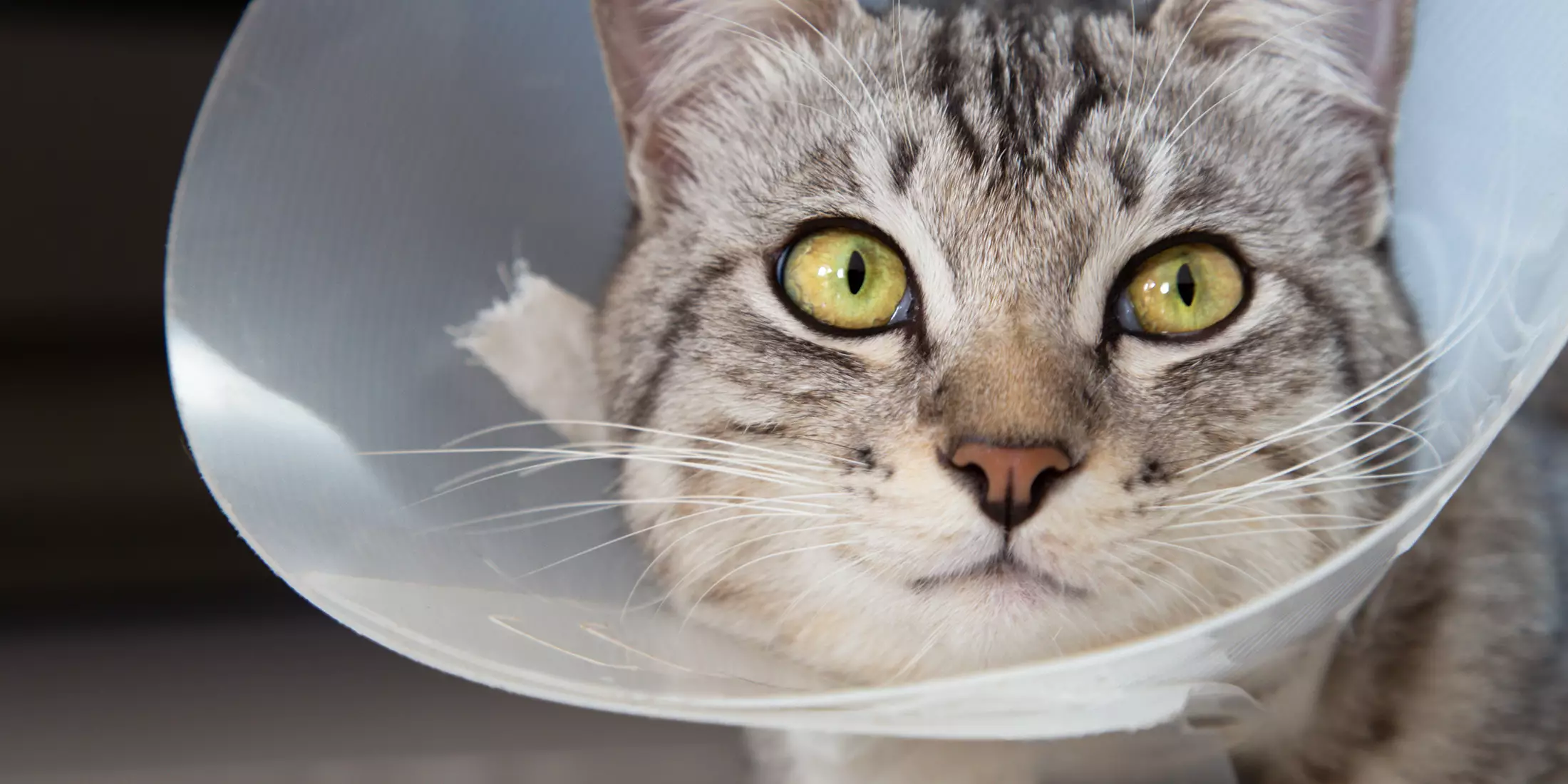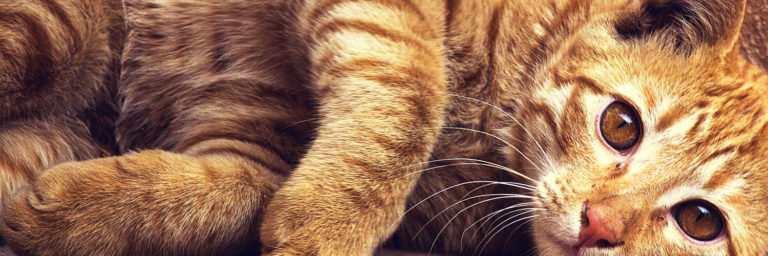Stomach Cancer In Cats
Contents of Article
Did you know stomach cancer in cats is a silent killer because it often goes undetected? A cat with stomach cancer rarely shows symptoms and therefore, its diagnosis and treatment are difficult. Also known as leiomyosarcoma, stomach and intestinal cancer start from the muscles of the stomach and intestines.
Although common in older cats, this extremely painful disease can affect all breeds. The condition gets serious if the tumor is malignant and metastasizes to other sites in the gastrointestinal tract, finally spreading to different organs. So, an early diagnosis of stomach cancer in cats can save your feline friend’s life.
Stomach Cancer Symptoms in Cats
Some of the signs of stomach cancer are common symptoms of some common stomach disorders as well, which makes diagnosis even more difficult. Therefore, it’s important to take your kitty to the vet to get her symptoms diagnosed.
The most common symptom of stomach cancer in cats is the growth of a tumor, which may be benign or cancerous. A malignant tumor can severely affect different organs and also cause a range of problems, including:
- Weight loss
- Loss of appetite
- Breathing problems
- Lethargy and weakness
- Limping
- Frequent stomach problems
Stomach cancer in cats also causes a range of gastrointestinal problems, including:
- Gas
- Diarrhea
- Vomiting
- Weight loss
- Blood in stool
- Growling or rumbling sound in the stomach
- Feeling of incomplete defecation
Diagnosis of Stomach Cancer in Cats
A vet will ask you questions about your cat’s health. He tries to gain as much knowledge as possible about her complete health history, including the initial symptoms and any other health issues affecting the kitty. A complete physical examination is essential for a clear diagnosis. Hence, the veterinarian will suggest urinalysis, biochemistry profile, and complete blood count.
A cat with an advanced stage of tumor may show signs of a few abnormalities, such as abnormally low glucose levels, anemia, and unusually high number of white blood count levels. To get a clear picture of the changes in the kitty’s stomach and intestinal walls, vets may perform various other diagnostic procedures. This may include abdominal X-rays and ultrasounds. The thickening of the wall is often detected in cats suffering from stomach cancer.
Contrast radiography may be performed to localize a tumor.
Gastroscopy is performed under anesthesia. An endoscope is inserted into the esophagus and passed through the stomach and intestines to reveal abnormalities in the affected areas. The vet may also collect a sample of suspicious cells for biopsy to confirm the diagnosis.
Types of Stomach Cancer
The symptoms of stomach cancer in cats start out barely noticeable. As they go unnoticed, they gradually increase until your kitty is not comfortable enough to hide away her pain and discomfort.
- Adenocarcinoma: A form of stomach cancer, adenocarcinoma originates in glandular tissues. It soon spreads to different organs, including small intestines, stomach, and large colon. Left untreated, the cells continue to multiply and cause gastric tumors.
- Lymphoma: When an adenocarcinoma spreads to the lymph nodes, it the condition is known as lymphoma.
- Mast cell tumors: A type of normal white blood cells found in the linings of the digestive tract, mast cells ensure a smooth functioning of the immune system. However, these cells may start behaving abnormally and form clusters/tumors, releasing huge amounts of chemicals into the kitty’s body. The tumors may be benign or cancerous and cause stomach and intestinal ulcers.
Stomach Cancer in Cats Treatment
Treatment usually depends on the stage of cancer and how far it has spread while early detection increases the chances of survival.
Surgery
For an isolated lump that has not metastasized, surgery remains the best treatment of the feline stomach cancer. It involves resection of the tumor mass and removal of some normal tissue. However, the removal of the lump does not guarantee complete recovery, and there is always a risk of recurrence. Surgery may help improve the quality of life and survival rate of the kitty.
The surgeon may like to analyze the removed tumor to find out if it is likely to have spread.
Chemotherapy
Chemotherapy is appropriate in cases where the tumor is impossible to remove fully or in the case of widespread tumors that cannot be removed surgically. The goal of chemotherapy in such cases is to slow down the growth of tumor cells. Chemotherapy, however, has a range of side effects. Your kitty may experience vomiting, diarrhea, or reduced appetite.
In cases of metastasis, prognosis or chance of survival and recovery is extremely poor. Following the surgery for stomach cancer in cats, it is important to visit the vet for routine checkups. The kitty may need to undergo abdominal ultrasound and X-rays every three months.
Take your furry friend to the vet immediately of there are frequent episodes of diarrhea, vomiting, stomach pain or abdominal distention.







